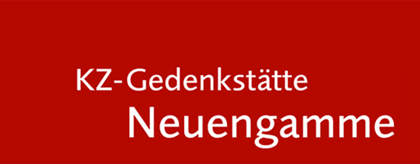08/30/2018 Report
My year as a volunteer for the ASF (Aktion Sühnezeichen Friedensdienste)
This year has truly flown by. So much has happened this past year in a blink of an eye. At the start of spring, my fellow volunteer Daria and I cajoled the groundskeeper of Neuengamme to provide us with bikes, and since then I’ve discovered a beautiful bike route that leads straight from our Bergedorf apartment to the memorial site along a paved, former train track, dotted with meadows and grazing cows. These 22 minute rides have become some of the most precious moments of my day, infusing me with energy for the work ahead.
My days have become routine in their atypical nature, as being a volunteer means that our lives are always subject to new directions. Bike to work, check the work email, dash out translation work, continue with the Memoryscapes project (that I will describe later), and turn to my big Ravensbrück project – if I have time. Eat a lunch, maybe outside or maybe inside, depending on how hot it is (and Hamburg is certainly going through some sort of heatwave this summer!).
The translation work has fallen into two camps: working with the archive to help with an amazing new initiative to create an on-site memorial for relatives of survivors; and working on translating and writing blogposts and other social media items.
Memoryscapes has turned into a huge project. A British initiative that crosses between the university, arts, and memorial spaces, Memoryscapes has become a central part of my year. While we’re still in the conceptual phase, it seems like it will become a framework for new, technology-based programming to assist with engagement with memorial sites – that crosses chronology and space easily. We discuss the merits of augmented reality tech, that it allows for one to go beyond 2-d, to enlarge and to contract quickly and seamlessly. It has been exciting and thought-provoking work. We hosted a big workshop at the start of June, and I was honored that as a native English speaker at the Neuengamme Memorial site, I was asked to join, offer feedback, and listen in. Since the workshop, I’ve had a busy summer of creating testing material for some of their initiatives.
My big Ravensbrück project, to edit and comment on the Ravensbrück War Crimes Trial transcript from 1947, has become ever-larger, turning from 1200 pages to 1500 pages. It is slow and rewarding work. I’ve learned so much while working with this trial, both about this era and about myself. Witness issues, language problems, and inadequate knowledge of international systems are all pernicious problems lying beneath the surface of this text. In many ways, reading these pages have also provided me glimpses into what it means to have inter-national conversations, a topic I think of often being a volunteer for the ASF (Action Reconciliation Service for Peace) in Germany within a cohort of internationals. This text was on my mind when we as a cohort visited Auschwitz. The conversations, and lack of conversations, that we as a cohort had were fascinating windows into what it means to have dialogue between nations. How to find a common ground and how to know that terms all mean the same to everyone using them are two questions I’ve ruminated over quite often this year and will take away as central thoughts going forward following my service.
I’ve also continued my work with Solidarische Hilfe. I feel so grateful to have met “my” senior. She has taken me to plays and concerts; we’ve discussed our own biographies and stories of her friends; we’ve danced and eaten hard-boiled eggs. Being with her has certainly expanded my ability to empathize and taught me how to approach on another person’s terms instead of my own.
Hamburg continues to be a great source of pleasure, especially now with a bike. I’ve explored the many lakes and beautiful spots near Bergedorf, and even rode into the city as dusk fell. I’ve loved experiencing the way life is paced here. Some of my favorite late afternoons have been sitting at the lake, watching how families interact with their children. These glimpses of German life have been fascinating and noteworthy. Hamburg has also surprised me with its art in abundance. I’ve experienced some lovely and thought-provoking exhibitions with friends, and the Kunsthalle has become a special favorite. As I’ve improved my German, I’ve also gone to film screenings apace. I’ve made some incredible friends here from all over the world, and I feel grateful for the flexibility of a volunteer year that has allowed me to pursue these relationships.
As the world becomes increasingly more global, I thank this voluntary service for all the interactions and experiences that have deepened my understanding of my place in the world amidst rising forces of nationalism and internationalism. Being a part of a memorial site and a cohort of this nature has offered me wisdom that I hope to remember for the rest of my life.
Yaffa Fogel (New York)

